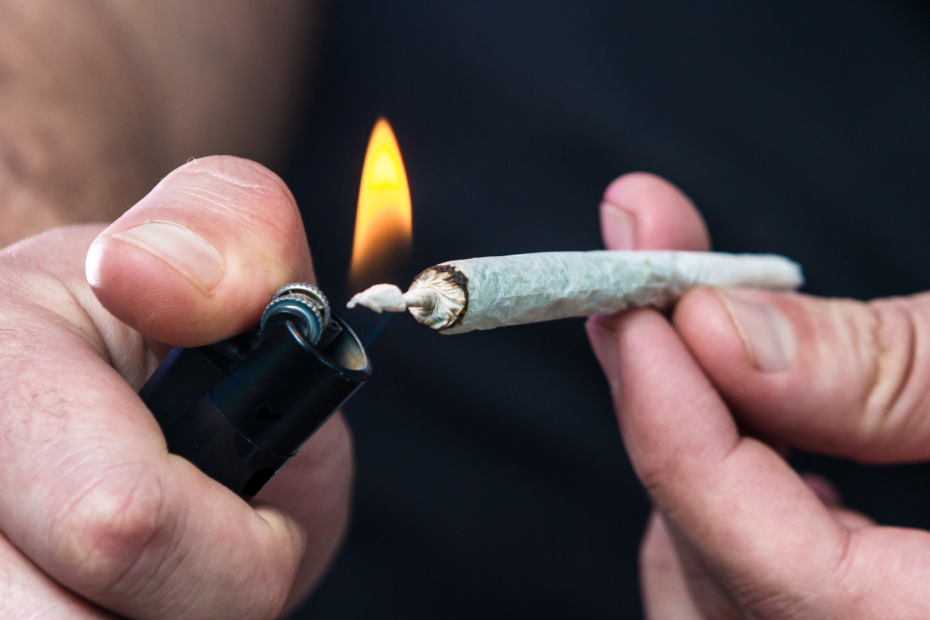Cannabis has been used throughout history for medicinal and recreational purposes-and it has been shown to be both medically and psychologically beneficial to both our physical and mental health. But the question remains: is cannabis addictive? And if it is, how can you break your cannabis habit?
Cannabis, or marijuana, is a drug made from the leaves and flowers of the cannabis plant. Since it is not physically addictive like some other substances, many people wonder if it is addictive. The short answer is yes, cannabis is addictive. But, the “yes” is qualified by the “most common.” Those most affected by the addictive properties of cannabis are people who have other addictions.
What Is Cannabis Use Disorder?
Cannabis use disorder (CUD) is a mental health disorder related to cannabis use. It is characterized by impaired control over cannabis use, which may involve frequent and heavy cannabis use in situations in which it is harmful. Unlike substance use disorder (SUD), CUD is not characterized by the periodic use of drugs despite adverse consequences. Instead, individuals continue to engage in problematic use of cannabis despite negative consequences, such as experiencing withdrawal symptoms when trying to stop smoking, losing interest in activities once enjoyed, or failing to achieve important life goals.
Researchers have coined the term “cannabis abuse disorder” in recent years, but what does it mean, and how do you know if you or a loved one has Cannabis Use Disorder (CUD)? CUDs are a group of conditions characterized by persistent or recurrent cannabis use despite harmful physical and psychological consequences. In such cases, to recover from the damaging effects of addiction, it is advisable to seek professional care and assistance from treatment centers like The Recovery Village Indianapolis. Taking this proactive approach can allow you to heal and lead a normal life free from the shackles of addiction.
How Do You Know If You Have CUD?
Cannabis Use Disorder is recognized as a drug addiction. It is also considered a form of ‘substance use disorder’, characterized by a recurring pattern of cannabis use. If you think you are on the path of cannabis dependency, or want to overcome your addiction, then familiarizing yourself with the tell-tale signs of it may be the first step you should take. This can further help you describe your journey with the drug once you decide to consult with any specialists in rehabilitation centers.
The symptoms of CUD may include:
- Anxiety/Agitated
- Cravings
- Guilty feelings
- Insomnia
- Memory issues
- Mood swings
- Social problems
- Suicidal thoughts
The Problems Linked to CUD
A common argument against legalizing cannabis is whether it leads to more consumption of hard drugs. The anti-legalization lobby has held up a number of studies on cannabis use and dependence, and many of them seem to hint at this correlation. Yet, there’s no hard evidence that supports the link between cannabis use and dependence. People who use cannabis for recreational purposes are at a much lower risk of becoming addicted to it than people who use it medicinally.
One of the most interesting things about the marijuana legalization movement is that cannabis has been stigmatized for decades, and there are some pretty strong arguments against its legalization. However, if you dig deeper, you will see how marijuana is being touted as a medicine to treat many ailments. For those who do develop problematic patterns of use, an IOP program can offer structured, outpatient support without requiring a full-time stay. These programs are designed to help individuals manage dependency while still maintaining their daily responsibilities like work or school. Having access to flexible treatment options like this can make it easier for people to take the first step toward change without feeling overwhelmed.
Who Gets CUD?
Some of the effects of marijuana addiction are similar to the effects of many other addictions: withdrawal from the drug, cravings, and a desire to use more. Quitting marijuana overuse can be challenging, but with proper support and a comprehensive recovery plan, individuals can overcome this addiction. Professional rehabilitation institutions like Paramount Recovery Centers tend to offer specialized programs designed to help individuals break free from marijuana dependence. These programs can provide a structured environment, counselling, and coping strategies to manage cravings and prevent relapse, ensuring a successful and sustainable recovery journey.
CUD, or Cannabis Use Disorder, is a condition where cannabis use disrupts daily life, affecting work, relationships, and overall well-being. While commonly associated with adults, younger users can also develop dependence and experience impaired cognitive and emotional functioning. Facilities like Which Rehab tend to provide expert support, offering tailored treatment programs to help individuals regain control and work toward lasting recovery.
How Does CUD Happen?
Some users, weed enthusiasts, and even cannabis growers swear that cannabis is addictive, like nicotine. Claims that cannabis is addictive are based on anecdotal observations from users, and little research has been done on the effects of cannabis on addictive behavior. However, we do know that cannabis is addictive to some, in the same way, that nicotine is addictive and that cannabis withdrawal can be painful and distressing.
CUD is a devastating condition that is extremely common and is misunderstood by many. It’s a substance use disorder that occurs when abuse of cannabis, as well as other drugs, interferes with a person’s life. While cannabis is often associated with recreational drug use, it is often used medicinally to reduce pain, treat seizures, and help with sleep.
